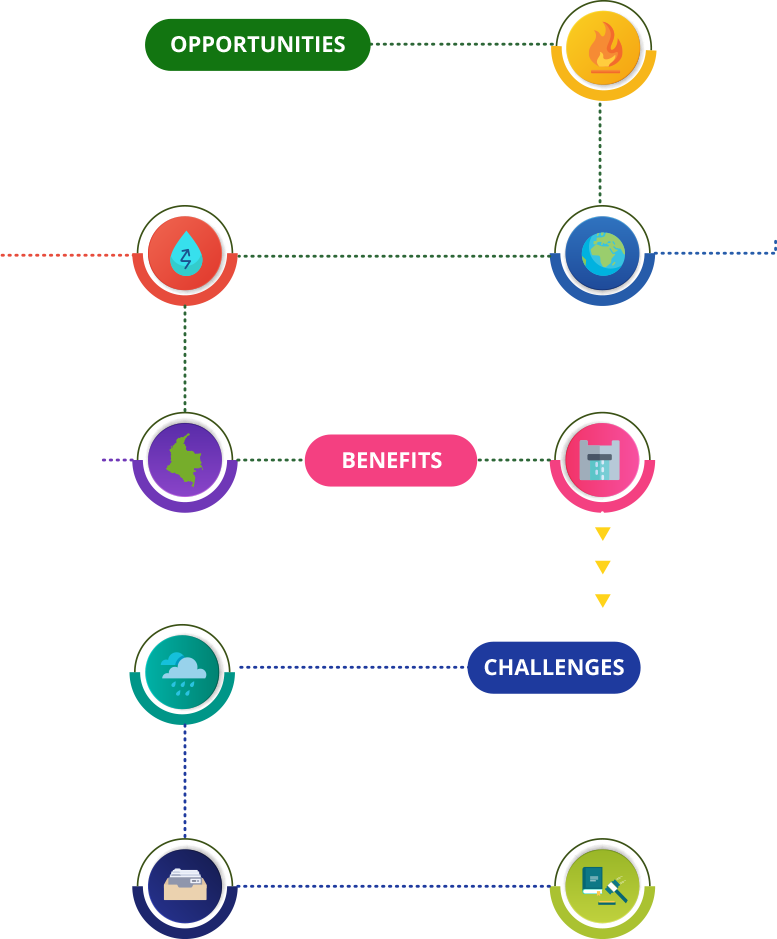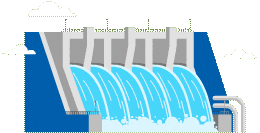Hidroelectricidad
HYDROPOWER
For more interesting facts on hydroelectricity and new business models click on each icon.




























- It provides more reliability to the National Electric Grid at reasonable costs.
- It contributes to the mitigation of the effects of climate change, helping through reservoirs to control floods and regulating the water resource during dry seasons.
- It generates low CO2 emissions.
- It does not waste or pollute the water.
- It is the most cost-effective and sustainable way to produce energy, thereby effectively responding to the variations in demand.
- It drives the development of other economic activities in the areas of influence.
- It provides resources for the protection of basins and the environment.
- It can be complemented with other renewable energy sources, such as wind and geothermal energy which are becoming ever more reliable and effective.
Climate change and climate variability
Climate change affects the availability of water, a resource largely used, to fulfill economic, energy and food needs. According to the Water, Environment and Health Institute, at present, water demand is increasingly higher than the water supply in the world (-40%).
According to the UN, Colombia is the third most vulnerable country to climate change since it drives the intensity of climate phenomena like El Niño and La Niña. This may result in risks, as well as physical, economic and regulatory impacts for the energy generation business, since it affects the uptime of water power reserves.
Knowledge and information
At the national and international levels, there is disinformation and unawareness on the technical and scientific aspects regarding hydroelectricity, as well as the advantages it offers the country and its communities. This form of generation is a process that functions with water and that strengthens the progress of regions and its inhabitants.
Regulations
The country requires clear policies on water management, protection and regulation, in order to obtain a greater collective benefit regarding the sustainable use of resources. In Colombia, the Law 1715 / 2014 on non-conventional renewable energy promotes the inclusion of these energy sources in the country´s energy system.
Changes should happen within the energy sector at the regulatory and business levels due to reduction in solar, wind and other energy source costs, as well as the distributed generation, the energy generated by several small energy sources located near consumption locations.
The National Electric Grid’s flexibility, security and stability depend on the policies and regulations that position hydroelectricity as a renewable energy source that offers benefits and enables possibilities.